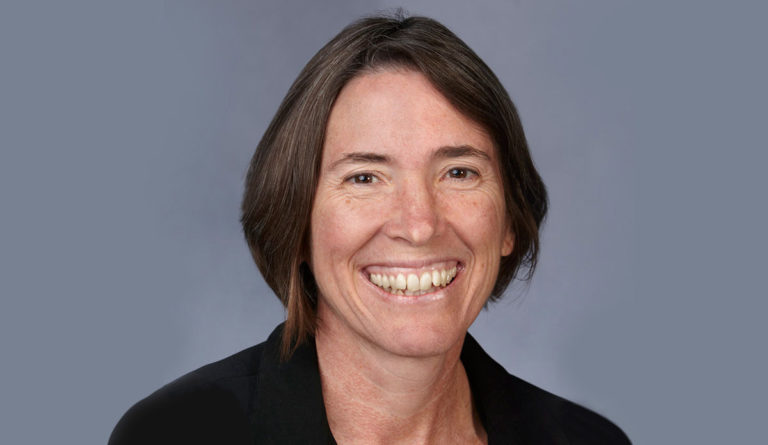Barbara Brents on Sex Work, Stigma, and Nuance
PHP sat down with Barbara Brents for a discussion on whether or not commercial sex should be legalized or decriminalized (it's complicated) and how journalists and public health professionals can contribute to a more nuanced understanding of the sex work industry.

Read Time: 5 minutes
Published:
Barb Brents is a professor in the Department of Sociology at the University of Nevada, Las Vegas. She is a co-author of The State of Sex: Tourism, Sex and Sin in the New American Heartland. Brents’ research uses a political economy lens to study sex and gender in market culture. Her recent work uses the sex industry as a site to understand the intersections of culture and economics–including the construction of “market morality” in political debates around sexuality; the relation between tourism, consumption, and sexuality; the emotional and bodily labor of selling sex; and consuming sex. Brents is a founding member of Globalization, Sexuality and the City, an interdisciplinary project and network to encourage the production and dissemination of research on the intersections of sexuality, culture, and economics across the globe.
Barbara Brents moved to Las Vegas nearly 30 years ago to begin her first job as a professor. Her research was focused on policy and aging, but she also had a strong interest in gender and feminism. She soon began to notice that students in her classes worked in the sex industry. Some were open about their work, others less so. “The first people that came out were dancers and stuff and I think that’s not uncommon in college settings,” Brents said in a recent interview for PHP.
Learning more about the sex industry from women who were working within it expanded her perspective. “They were telling me very different things than what I had thought growing up in the Midwest,” she says.
When her colleague, Kate Hausbeck Korgan, approached her with an idea to research Nevada brothels. Brents agreed and, after several years of research, they published a book based on interviews with women who worked in the sex work industry. Since then, she has continued to research legal brothel systems in the U.S. and around the world, studying how the exchange of sex for money actually works, public attitudes, and the implications of policies that regulate sex work. More recently, she is interested in the ‘demand’ side of the exchange.
As for whether or not commercial sex should be legalized or decriminalized, she says, the answer is complicated. “There’s no ‘one size fits all’ in this system.” But Brents has a firm stance that criminalization does not work. “I think that whatever we choose has to think first and primarily of the rights of the individuals that are in it, and there are a lot of individuals who choose to do this.”
As for whether or not commercial sex should be legalized or decriminalized, Brents says, the answer is complicated. “There’s no ‘one size fits all’ in this system.”
Over the past three decades, she says, acknowledgment of the industry’s diversity is increasing. For instance, there is a very strong difference between being trafficked and working as a high-end escort. And one of the most important strengths that public health and journalism can both help bring to the conversation, Brents says, is nuance.
For instance, a policy that helps victims and survivors of sex trafficking might actually put sex workers in danger. One recent example is the shutdown of the adult services subsection of the classified advertisement website, Back Page, in early 2017. The website was known for facilitating the sexual exploitation of children and was condemned by the United States Senate. Its founders and executives have been accused of money-laundering and pimping in California and have fought numerous lawsuits.
Closing this section of Back Page has likely been useful for fending off traffickers. However, it also removed extra layers of security between sex workers and their clients since it eliminated the option to pay for services with credit cards, says Brents. In general, the ability to conduct business online allows workers to “vet” clients, especially if customers are willing and able to use a credit card. “[It] sets up the exchange much more like how normal services are delivered,” she says.
The criminalization of sex work also means that workers need “mechanisms to stay out of the eye of the police,” according to Brents. Many women employ “spot pimps” to help ensure their safety, for instance. And it means that workers who experience sexual violence are often afraid to report the crime, since they may face the possibility of arrest or sexual assault victimization by the officers themselves, according to the Huffington Post.
Even if sex work becomes more widely decriminalized, Brents says the stigma of the industry will still keep workers from accessing services and resources that could protect their health and safety. “You’re still at the mercy of the service provider who’s going to make judgments on you, because that stigma is not going to go away… stigma that’s deep in our culture.”
As a self-described feminist, one of her driving questions is, “Why is it [that] the highest paying job possible for women is so stigmatized?” she asks.
She explains that one reason for the stigma is the misinformation that has historically been disseminated by the media. “I think if journalists can look at evidence, and pay attention to peer-reviewed articles and reports and methodologically sound studies, that can go a long way to understanding the nuance.”
This also means that public health can play a major role in changing public perceptions, protecting the rights of sex workers, and contributing to a more nuanced understanding of the sex work industry. “My hope is that public health workers have always been more understanding about the stigma surrounding sex and taken a harm reduction kind of approach to these things,” she says. “I’m hoping that you all will see that providing good services to people, not just targeting people to arrest, is going to be a lot of help.”
Photo courtesy of Barbara Brents.



